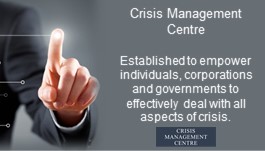The second phase of IP Key SEA’s #YourHealthIsPriceless campaign has been launched to raise awareness among consumers about the harm that counterfeit cosmetics can cause to their face, skin, and holistic well-being.
Today, the IP Key South-East Asia (SEA) project, funded by the European Union (EU), is launching the second phase of the #YourHealthIsPriceless campaign to promote consumer awareness against counterfeit cosmetics and personal care products, including beauty products like skincare and face injections.
These goods can potentially harm consumers’ health and violate both consumer rights and intellectual property rights. Considering how little effort it takes to sell and transport them, consumers have to be fully aware of their harmful effects, be wary of unreliable online promotions, and buy only from legitimate sources.
The first phase of the campaign was launched in September, providing information about the harmful effects of counterfeit pharmaceutical products, and calling for action against selling, purchasing, and consuming them.
“This IP Key SEA campaign aims to continue raising the public’s awareness of this issue, and initiate dialogues on intellectual property rights, including trade mark protection. Trade marks protect consumers against confusion, deception, and misleading information, help them distinguish genuine products from counterfeit ones and guarantee the products’ quality. An efficient trade mark protection system can prevent people from being exposed to dangerous substances and could save their lives,” said Tiago Guerreiro, IP Key SEA Project Leader.
“Local authorities in Southeast Asia are currently undertaking efforts to prevent the trafficking of counterfeit beauty products and protect consumers from the harmful effects that these products cause to their faces, skin, and holistic well-being. Through the IP Key SEA project, the EU fully supports this mission throughout the region,” he added.
For all consumers to gain full benefits from an effective IP protection, IP Key SEA encourages people to support the current cross-border cooperation on improving IPR enforcement by informing their friends about the downside of buying counterfeit cosmetics and personal care products from illegitimate sources and sharing their experiences alongside a description, photo, or video, include the hashtags #YourHealthIsPriceless #IPKeySEA #EUinThailand #EUForeignPolicy and tag the @IPKey_EU Twitter account or IP Key Facebook page.
DO YOU WANT TO KNOW MORE? FIND OUT HERE THE FACTS AND FIGURES ABOUT COUNTERFEIT COSMETICS AND PERSONAL CARE PRODUCTS.
‘Mapping Real Routes of Trade in Fake Goods’, a research released in 2017 by the Organisation for Economic Cooperation and Development (OECD) and the European Union Intellectual Property Office (EUIPO), stated that, between 2011 and 2013, counterfeit products in the cosmetics and perfumery sector from Malaysia, Thailand, and Singapore were usually exported to the EU, the United States, and the Middle East. They are available in several popular physical marketplaces in Southeast Asia and online marketplaces.
According to the European Commission’s ‘Counterfeit and Piracy Watchlist 2018’, these physical marketplaces, including shopping venues and open-air markets, are still operating and selling counterfeit products of different brands, especially in this sector. These physical marketplaces are very well-known, open to the public, close to landmarks and tourist attractions, and easily accessible via public transportation.
The major venues include MBK Center in Bangkok, Thailand, where allegedly more than 2,000 shops count with 100-500 counterfeit items per shop, including a large number of fake cosmetics, personal care products, and beauty products. EU stakeholders have also reported the presence of huge amounts of counterfeit goods in Mike Shopping Mall in Pattaya, Phuket Night Market in Phuket, and Rong Kluea Market in Sa Kaeo. Regarding other SEA countries, these fakes can be found for sale in Petaling Street Market in Kuala Lumpur, Malaysia, and Saigon Square Plaza in Vietnam, for instance.
On the other hand, there is an abundant number of online marketplaces also selling counterfeit cosmetics, personal care products, and beauty products, which has brought considerable challenges to the local customs and enforcement officials.
 Furthermore, the trade of fake goods in the cosmetics and perfumery sector has been eroding the supply chain and economic development globally. In the EU alone, the total revenue loss attributable to the legitimate sector averages annually at EUR 17.9 billion total sale loss and EUR 3.5 billion total government revenue loss during 2013-2017, according to the EUIPO’s ‘2020 Status Report on IPR Infringement’. The results have become an increasing concern for the legitimate cosmetics business, in the EU and in other parts of the World.
Furthermore, the trade of fake goods in the cosmetics and perfumery sector has been eroding the supply chain and economic development globally. In the EU alone, the total revenue loss attributable to the legitimate sector averages annually at EUR 17.9 billion total sale loss and EUR 3.5 billion total government revenue loss during 2013-2017, according to the EUIPO’s ‘2020 Status Report on IPR Infringement’. The results have become an increasing concern for the legitimate cosmetics business, in the EU and in other parts of the World.
SOURCE IP Key South-East Asia

